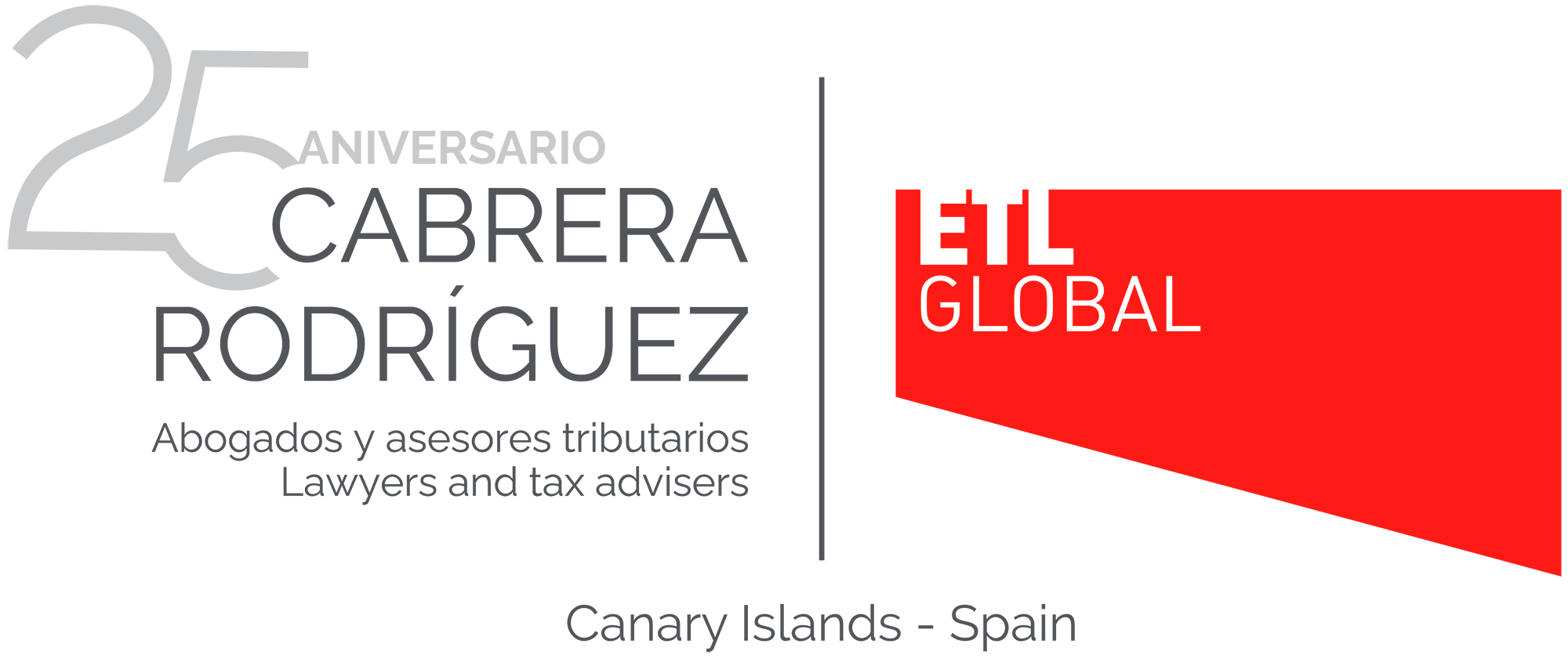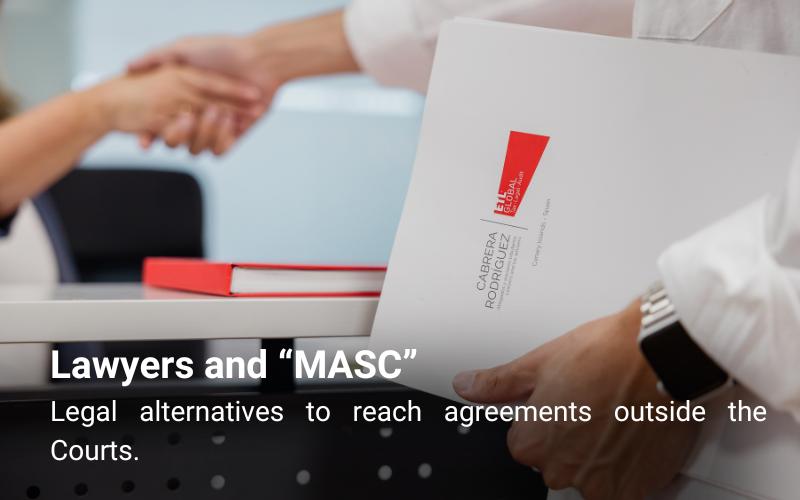Lawyers and MASC (Spanish acronym for Appropriate Dispute Resolution methods)
When facing a legal issue—whether due to a claim of liability or the need to assert a right—our first instinct is often to turn to the courts. In some cases, judicial proceedings may indeed be the most appropriate solution, especially when a strictly legal response is required.
However, court proceedings do not always provide the most satisfactory outcomes. They often involve financial, emotional, and time-related costs that not everyone is willing or able to bear. For this reason, alongside traditional litigation, there are alternative methods that allow for more agile, cost-effective, and personalized conflict resolution.
These methods, known as MASC (Spanish acronym for Appropriate Dispute Resolution methods) give individuals an active role in resolving their disputes, encouraging agreements that better reflect their needs and interests. They promote collaboration and enable effective solutions without resorting to litigation.
In this context, Organic Law 1/2025, of January 2, on measures to improve the efficiency of the Public Justice Service, introduces significant reforms to the Spanish judicial system, aiming to enhance its efficiency and accessibility. Published in the Official State Gazette on January 3, 2025, the law will come into force on April 3, 2025.
Among its many innovations, the law emphasizes the promotion of MASC mechanisms, which represent a key step toward resolving disputes more efficiently and economically, while reducing the workload of the courts. These mechanisms foster a culture of agreement, dialogue, and responsibility, offering alternatives better suited to the parties’ needs than traditional litigation.
The Goal: A More Efficient and Participatory Justice System
The law establishes that, before resorting to the courts, parties must demonstrate that they have attempted to resolve the conflict through negotiation or alternative methods. This approach empowers citizens to take charge of resolving their disputes, using key tools such as mediation, conciliation, or expert opinions.
Below is an overview of the MASC mechanisms highlighted in Organic Law 1/2025 and the role lawyers play in each:
1. Mediation
Mediation involves a neutral professional (mediator) who facilitates dialogue between the parties to help them reach an agreement without going to court. It saves time and money and encourages collaborative, tailored solutions.
Lawyer’s role:
• While not mandatory, legal advice is highly recommended to ensure informed and lawful decisions.
• If an agreement is reached, the lawyer reviews the document to protect their client’s rights.
• In case of non-compliance, the lawyer may represent the client in court.
Agreements reached through mediation have the same legal validity as a court judgment.
2. Conciliation (Public or Private)
In conciliation, a qualified professional (conciliator) helps the parties reach an agreement by proposing possible solutions, which the parties may accept or reject.
Public conciliation formats include:
• Justices of the peace (for minor disputes up to €6,000).
• Court clerks, under the Voluntary Jurisdiction Law.
• Notaries, under the Notarial Law.
• Registrars, under the Mortgage Law.
Lawyer’s role:
• Advises the client on the conciliator’s proposals.
• Participates in negotiations to protect the client’s interests.
• Reviews the final agreement to ensure legal validity.
3. Confidential Binding Offer
One party makes a confidential offer to the other to resolve the dispute. If rejected, the offer remains confidential and cannot be used as evidence in future litigation.
Lawyer’s role:
• Drafts the offer to safeguard the client’s rights.
• Assesses the risks of accepting or rejecting the offer.
• Ensures compliance with the terms if the offer is accepted.
4. Independent Expert Opinion
An impartial expert analyzes the case and issues a technical or legal opinion. This opinion is non-binding unless the parties agree otherwise.
Lawyer’s role:
• Helps select the most suitable expert.
• Provides necessary information for the expert’s analysis.
• Reviews the opinion and advises the client on how to use it in negotiations or litigation.
5. Collaborative Law
In this method, the parties and their lawyers negotiate an agreement without going to court. If no agreement is reached, the lawyers cannot represent the clients in subsequent litigation.
Lawyer’s role:
• Plays a central role by negotiating directly on behalf of the client.
• Seeks consensus-based solutions, prioritizing cooperation.
6. Restorative Justice
Focused on repairing harm caused by a crime or conflict, this method enables dialogue between the victim and the offender, facilitated by a neutral party.
Lawyer’s role:
• Represents and supports the client (victim or offender) during sessions.
• Ensures the client’s rights are respected.
• Oversees the legality of any agreements reached.
7. Arbitration
A neutral third party (arbitrator) issues a binding decision after analyzing the case. Although governed by its own law (Law 60/2003 on Arbitration), it is a recognized complementary method.
Lawyer’s role:
• Represents the client in arbitration proceedings.
• Presents evidence and arguments before the arbitrator.
• Oversees enforcement or challenges to the arbitral award.
Why Choose this system?
MASC mechanisms offer several significant advantages over traditional court proceedings. Among the most notable benefits are:
- Agility and flexibility: Conflicts are dynamic and require solutions tailored to the specific needs of each case. MASC methods are much faster and more flexible than judicial procedures, which are often rigid in form and timing.
- Lower financial and time costs: Parties save both time and money by opting for alternatives to litigation.
- Voluntariness: These methods are initiated only if both parties agree, and any participant may withdraw at any time.
- Control over the process and outcome: The parties retain full control over how the process unfolds and the solution reached (except in arbitration, where the decision is binding).
- Lower personal cost: MASC avoids the emotional and personal toll often associated with prolonged litigation.
- Collaboration and social cohesion: These methods promote a collaborative rather than confrontational approach, which not only facilitates conflict resolution but also helps preserve and strengthen future relationships.
- Greater satisfaction: Because the parties actively participate in crafting the solution, satisfaction with the outcome is often higher than with a court-imposed judgment.
- Practical and effective solutions: Agreements reached through MASC are always viable and enforceable, ensuring that the obligations agreed upon are realistic and effective.
In all these methods, the role of the lawyer is essential—whether as advisor, negotiator, or representative—always ensuring that the client’s rights and interests are fully protected.


